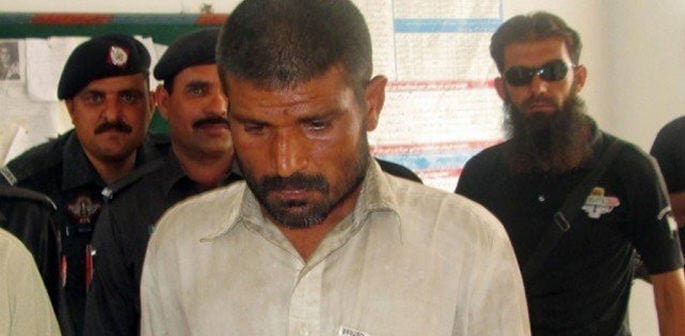The brothers had been jailed twice for acts of cannibalism.
Two brothers who are convicted cannibals were sent to a hospital on Thursday, March 26, 2020, to be tested for Coronavirus.
The police sent the men to the hospital, which is in the town of Darya Khan, in the Punjab province of Pakistan, as a safety precaution.
However, the brothers, Arif and Farman Ali, were sent back due to testing kits being unavailable at the hospital.
The men had been locked up in Mianwali Jail. But following the completion of their sentence, they were transferred to Darya Khan Police Station.
It was reported that the cannibals were sent to Bhakkar District Jail for a month as citizens became fearful when they heard reports of their release.
The brothers had been jailed twice for acts of cannibalism.
They were first jailed in 2011 but were later released. They were arrested for another offence in 2014 and jailed for life by the Anti-Terrorism Court in Sargodha.
In 2011, the brothers dug up the body of a young woman and ate it.
They were arrested in 2014 for digging up the corpse of a young boy for the same purpose. Police had found body parts at their home.
The brothers went on trial under terrorism charges as no law existed to criminalise cannibalism in Pakistan. This led to lawmakers filing a bill to outlaw cannibalism.
Arif and Farman were tested for Coronavirus as a precaution after the first prisoner in Pakistan was confirmed to have the virus.
The prisoner had been arrested on drug charges in Italy before returning to Pakistan. The prisoner had been among thousands of inmates in an overcrowded prison facility.
The prisoner was being held at the central jail in Lahore, which houses around 3,500 inmates.
An official at Lahore General Hospital stated that the prisoner was moved to an isolation ward for treatment.
Prison authorities were told not to move inmates to the detention centre before undergoing tests for the virus.
It was not immediately clear how many other inmates and prison staff were inadvertently exposed to the disease.
Local and international rights groups have been urging Pakistani authorities to take preventive steps, including social distancing, in the country’s jails, which house more than 77,000 prisoners.
In a statement, Amnesty International said:
“Prisons in Pakistan face massive overcrowding, overruling the possibility of social distancing, with the potential for a large outbreak. Hygiene supplies remain limited as does healthcare.”






























































